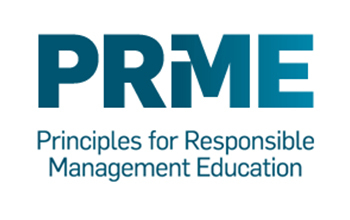- Homepage
- ESDES’s blog
- Responsible Natives
- Pathing the way to making an impact in the Finance Sector
Sarah Clifft
2 min.
3 January 2023
Impact finance, also known as social finance or sustainable finance, is a rapidly growing area of finance that focuses on generating positive social and environmental impacts, in addition to finance returns. In recent years, impact finance has become a hot topic for a number of reasons :
1 – Sustainability and ESG : Sustainability has become a top priority for many investors and companies, as concerns about climate change, social inequality and other environmental and social issues have grown. Impact finance offers a way for investors to align their financial goals with their values by supporting projects that address these issues. According to the Global Impact Investing Network, the size of the global impact investing market grew from $22.1 billion in 2013 to $502 billion in 2020.
2 – Emerging markets : Impact finance is often seen as a way to address development challenges in emerging markets, such as improving access to education, healthcare and clean energy. As these markets continue to grow and evolve, there is increasing demand for financial solutions that can help address these challenges.
3 – Innovation : Impact finance often involves innovative financial instruments and models that are designed to address social and environmental issues in new and creative ways. For example, impact bonds, green bonds, microfinance and crowdfunding platforms are all examples of impact finance approches that have gained popularity in recent years.
4 – Return on investment : Many impact finance projects have demonstrated strong financial returns, often outperforming traditional investments. THis has helped to increase the appeal of impact finance to investors who are looking for both financial and social returns.
5 – Regulation and policy : Governments and regulatory bodies are increasingly recognizing the importance of impact finance. The UN convened Net-zero banking Alliance has brought together almost 40% of all banking assets and pledged to align their lending and investment portfolios with net-zero emissions by 2050. The Alliance has already achieved a significant milestone as 90% of the banks in the alliance have delivered on their targets well ahead of the first 18 month deadline. Impact measurement frameworks and standards are therefore essential, such as the Impact Management Project’s «Impact Management Project Protocol, » which aims to provide a common framework for measuring and demonstrating impact
The subsequent result of this growing trend in the finance sector is that an increasing demand is placed on banks and other financial institutions to recruit professionals with relevant knowledge and expertise in the field of impact finance. Recently, reported on this employment trend in 2022 and stated that it is already one of Asia’s in-demand fields. The talent pool of candidates with proven experience in ESG and private and/or public sectors is currently limited and the rarity of such talent will push the finance sector to propose attractive gender-neutral packages to candidates who present a solid track record in this field.
ESDES will be launching their 1 year MSc in Impact Finance and Fintech Management in October 2024 that aligns with industry expectations and practitioner and research based teaching.









